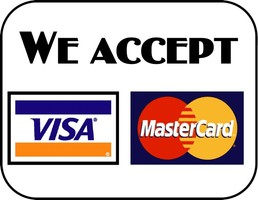
We Keep You Up to Date
FOR MORE TIPS AND UP DATES CHECK OUT OUR FACEBOOK PAGE
http://www.facebook.com/pages/J-J-TAXES-AND-MORE/226060349206
Internet Security
These days most people are spending more time at home and a lot more time online. Whether people are online for work, school, a virtual gathering or shopping, online security is more important than ever.
Everyone should be mindful of risks they may encounter when they share devices, shop online and interact on social media.
Taxpayers might find the online security overwhelming, but it doesn't have to be. Even those who aren't super tech-savvy can stay safe online.
Remember security is important!
No one should reveal too much information about themselves. People can keep data secure by only providing what is necessary. This reduces online exposure to scammers and criminals. For example,
birthdays, addresses, age and especially Social Security numbers are some things that should not be shared freely. In fact, people should not routinely carry a Social Security card in their wallet or
purse.
Use software with firewall and anti-virus protections
People should make sure security software is always turned on and can automatically update. They should encrypt sensitive files stored on computers. Sensitive files include things like tax records,
school transcripts and college applications. They should use strong, unique passwords for each account. They should also be sure all family members have comprehensive anti-virus protection for their
devices, particularly on shared devices.
Learn to recognize and avoid scams
Everyone should be on the lookout for scams. Thieves use phishing emails, threatening phone calls and texts to pose as IRS employees or other legitimate government or law enforcement agencies. People
should remember to never click on links or download attachments from unknown or suspicious emails. If someone calls asking for personal information, people should not to give out such details.
Protect personal data.
Adults should advise children and teens and other young users to shop at reputable online retailers. They should treat personal information like cash and shouldn’t leave it lying around.
Know the risk of public Wi-Fi.
Connection to public Wi-Fi is convenient and often free, but it may not be safe. Hackers and cybercriminals can easily steal personal information from these networks. Always use a virtual private
network when connecting to public Wi-Fi.
IRS Tax Tip 2020-163, December 1, 2020
Tax Tips if You’re Starting a Business
If you plan to start a new business, or you’ve just opened your doors, it is important for you to know your federal tax responsibilities. Here are five basic tips from the IRS that can help you get started.
- Type of Business. Early on, you will need to decide the type of business you are going to establish. The most common types are sole proprietorship, partnership, corporation, S corporation and Limited Liability Company. Each type reports its business activity on a different federal tax form.
- Types of Taxes. The type of business you run usually determines the type of taxes you pay. The four general types of business taxes are income tax, self-employment tax, employment tax and excise tax.
- Employer Identification Number. A business often needs to get a federal EIN for tax purposes. Check IRS.gov to find out whether you need this number. If you do, you can apply for an EIN online.
- Recordkeeping. Keeping good records will help you when it’s time to file your business tax forms at the end of the year. They help track deductible expenses and support all the items you report on your tax return. Good records will also help you monitor your business’ progress and prepare your financial statements. You may choose any recordkeeping system that clearly shows your income and expenses.
- Accounting Method. Each taxpayer must also use a consistent accounting method, which is a set of rules that determine when to report income and expenses. The most common are the cash method and accrual method. Under the cash method, you normally report income in the year you receive it and deduct expenses in the year you pay them. Under the accrual method, you generally report income in the year you earn it and deduct expenses in the year you incur them. This is true even if you receive the income or pay the expenses in a future year.
Tax Tips for Newlyweds
Late spring and early summer are popular times for weddings. Whatever the season, a change in your marital status can affect your taxes. Here are several tips from the IRS for newlyweds.
- It’s important that the names and Social Security numbers that you put on your tax return match your Social Security Administration records. If you’ve changed your name, report the change to the SSA. To do that, file Form SS-5, Application for a Social Security Card. You can get this form on their website at SSA.gov, by calling 800-772-1213 or by visiting your local SSA office.
- If your address has changed, file Form 8822, Change of Address to notify the IRS. You should also notify the U.S. Postal Service if your address has changed. You can ask to have your mail forwarded online at USPS.com or report the change at your local post office.
- If you work, report your name or address change to your employer. This will help to ensure that you receive your Form W-2, Wage and Tax Statement, after the end of the year.
- If you and your spouse both work, you should check the amount of federal income tax withheld from your pay. Your combined incomes may move you into a higher tax bracket. Use the IRS Withholding Calculator tool at IRS.gov to help you complete a new Form W-4, Employee's Withholding Allowance Certificate. See Publication 505, Tax Withholding and Estimated Tax, for more information.
- If you didn’t qualify to itemize deductions before you were married, that may have changed. You and your spouse may save money by itemizing rather than taking the standard deduction on your tax return. You’ll need to use Form 1040 with Schedule A, Itemized Deductions. You can’t use Form 1040A or 1040EZ when you itemize.
- If you are married as of Dec. 31, that’s your marital status for the entire year for tax purposes. You and your spouse usually may choose to file your federal income tax return either jointly or separately in any given year. You may want to figure the tax both ways to determine which filing status results in the lowest tax. In most cases, it’s beneficial to file jointly.
Consumer Alert
Taxpayers should be on the lookout for a new, email-based phishing scam now
circulating that targets Department of Defense military members, retirees and
civilian employees. The email appears to come from Defense Finance and
Accounting Services and displays a .mil email address. The email states that
those receiving disability compensation from the Department of Veterans Affairs
(VA) may be able to obtain additional funds from the IRS. Email recipients are
then asked to send various VA and IRS documents containing their personal and
financial information, such as copies of VA award letters or their income tax
returns, to an address in Florida.
The information on these documents is then used by the scammers to commit
identity theft. Typically, identity thieves use someone’s personal data to empty
the victim’s financial accounts, run up charges on the victim’s existing credit
cards or apply for new loans, credit cards, services or benefits in the victim’s
name.

